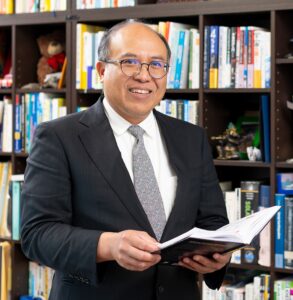Short Biodata
Prof. Josaphat “Josh” Tetuko Sri Sumantyo, Ph.D
Center for Environmental Remote Sensing (CEReS), Chiba University
1-33, Yayoi, Inage, Chiba 263-8522 Japan.
Tel/Fax: +81(0)43-290 3840 Fax: +81 (0)43-290 3857
Email: jtetukoss(a)faculty.chiba-u.jp
He was born in Bandung, Indonesia in 1970. He received the B.Eng. and M.Eng. degrees in Electrical and Computer Engineering from Kanazawa University, Japan in 1995 and 1997, respectively (Subsurface Radar Systems) and the Ph.D. degree in Artificial System Sciences (Applied Radio Wave and Radar Systems) from Chiba University, Japan in 2002.
From 1990 to 1999, he was a Researcher with the Agency for Assessment and Application of Technology (BPPT), Jakarta. He was with the Center for Frontier Electronics and Photonics (Venture Business Laboratory), Chiba University, Japan, as a Lecturer (Post Doctoral Fellowship Researcher) from 2002 to 2005. He was an associate professor (permanent staff) at the Center for Environmental Remote Sensing (CEReS), Chiba University from 2005 to 2013, and then a full professor (permanent staff) at the exact center from 2013 to now.
He is a member of international and domestic organizations and a reviewer of journals and organizations. He received many awards and grants related to his research and studies, and he promoted many students worldwide as a visiting lecturer/professor in many universities, etc.
His main interests are theoretically scattering microwave analysis and its applications in microwave (radar) remote sensing, especially synthetic aperture radar (SAR) and subsurface radar (VLF), including InSAR, DInSAR, and PS-InSAR, analysis and design of antennas for mobile satellite communications and microwave sensors, development of microwave sensors including SAR for Unmanned Aerial Vehicle (UAV) and microsatellite development, development of weather/climate modification and cloudseeding systems.
He manages Josaphat Microwave Remote Sensing Laboratory (JMRSL), Center for Environmental Remote Sensing (CEReS), Chiba University, Japan. His laboratory promotes education and research to develop international technologies and sciences on microwave remote sensing. He always encourages undergraduate and postgraduate students to know the microwave phenomena and to be familiar with the interaction between microwave and natural matters (i.e., vegetation, artificial materials, earth surface, snow). Therefore, they could develop original methods or sensors while studying in the courses.
Away from work, he enjoys eating ethnic foods, traveling, and cycling.
Book of Prof Josaphat’s Biodata



